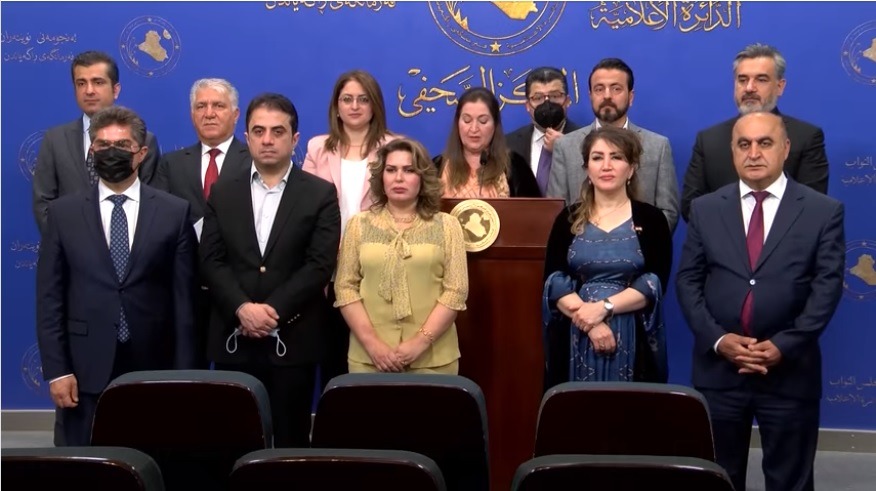MOSUL TIME RADIO
The Kurdistan Democratic Party (KDP) bloc in the Iraqi Parliament called for an end to the “manufactured crisis” between Baghdad and Erbil, cautioning against leading Iraq into “an unknown and complicated situation.”
In a statement on the Newroz occasion, the bloc criticized the recent decisions of the Federal Court, deeming them “contrary to the spirit of the constitution.”
Last February, Iraq’s Supreme Court issued rulings related to the Kurdistan Region’s election law.
The court declared that a specific article concerning the minority quota in KRG’s provincial election law was deemed “unconstitutional.” This article, part of a law initially adopted in 1992 and revised in 2013, mandates 11 quota seats in the Regional parliament for ethnic and religious minorities. In response, the Turkmen (a minority) withdrew from the elections.
Furthermore, the verdict stated that Iraq’s Independent High Electoral Commission will take over from KRG’s electoral commission to supervise parliamentary elections, which are anticipated to occur next June.
The decision also divided Kurdistan into four constituencies, Al-Sulaymaniya, Erbil, Duhok, and Halabja instead of the single-constituency system in previous elections.
Another decision by the court urged the localization of the salaries for Kurdistan’s employees in government banks.
“This year’s Newroz coincides with Iraq going through a series of problems, most notably the recent decisions by the Federal Court…These decisions concern the salaries of Kurdistan Region employees and the elections for its parliament, allowing interference in the Region’s affairs, controlling its institutions, and imposing central authority on it, despite the clear provisions in the constitution regarding the Kurdistan Region’s status and self-management.” KDP said in the statement.
Furthermore, the bloc emphasized the “inconsistency of the Federal Court’s decisions with pre-existing agreements within the State Administration Coalition (SAC),” deeming that “the disregard for these agreements after the government formation has gradually led to the current situation of the Federal Court’s decisions.”
The SAC coalition was established following Muqtada Al-Sadr’s withdrawal from politics. It comprises mainly the KDP, led by Masoud Barzani, the Sunni Sovereignty, led by Khamis al-Khanjar, and the Iran-backed Shiite coalition forces (Coordination Framework).
The coalition outlined goals such as combating corruption, implementing reforms, rebalancing Iraq’s regional relations, revising the electoral commission system, and promoting consensus among Iraqi factions.
The statement concluded with a call to end the “manufactured crisis” between the Kurdistan Region and the federal government, emphasizing the need to “avoid pushing Iraq into a precarious situation that does not serve the interests of all parties involved.”
The KDP’s withdrawal from running the upcoming parliamentary elections on June 10 sparked concerns among internal and international parties.
The UN Assistance Mission for Iraq (UNAMI) called on the Kurdish parties to prioritize the people’s interests and consider holding the parliamentary elections “essential.”
“We take note of today’s KDP decision, as we have taken note of the FSC decision last month. We call on all parties to work in the interest of the people, and thus towards solutions, rather than another prolonged impasse. The holding of the June 10 KRI elections is essential.” UNAMI said in a statement.
“We are concerned by KDP’s announcement to boycott the Iraqi Kurdistan Region elections. We urge the Government of Iraq & the Kurdistan Regional Government to ensure that elections are free, fair, transparent, & credible.” US Ambassador Alina L. Romanowski said on X.
She added, “All the people of Iraqi Kurdistan Region should have a voice in determining their future.”






